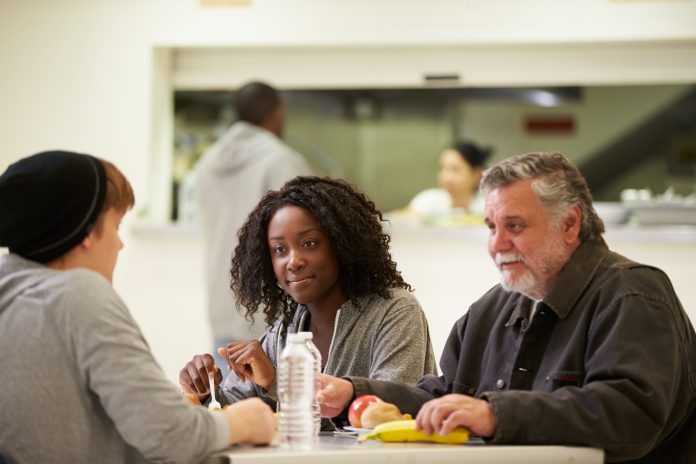Mike Crowther, CEO of Empowerment, discusses how a new approach to public management called Human Learning Systems (HLS) can transform services
Life is messy, unpredictable and for so much of it we are not in control. So why do so many of us in public service pretend otherwise? My story in public service started when I was an idealistic young man wanting to change the world. Realising quickly that I couldn’t quite do that, I settled for changing individual lives. I was a frontline worker for 10 years, working mainly with homeless people. I loved the work and meeting such varied and incredible people. But it was the opportunity to put my values into action which made the work so enjoyable.
Eventually, I became a leader of organisations and very quickly immersed myself wholeheartedly in New Public Management. This was characterised by the ‘New Labour’ Government’s ‘Supporting People’ programme. Though a welcome investment in services for homeless people or those at risk of homelessness, with it came a whole plethora of paperwork, assessments, support plans and outcomes monitoring. I embraced this approach with enthusiasm and became obsessed with outcomes, with progressions made and with paperwork being completed on time and entered on the system! Whether people’s lives were being changed ceased to matter, just that our performance monitoring returns stated outcomes were being achieved and that all the other data we had to report on wouldn’t concern our commissioners.
Looking back at this time is frankly painful. Everything I had learned as a frontline worker: that is the messiness of people’s lives and that change takes place within trusting and positive relationships, had been forgotten. Instead, I was supporting an approach that sought to impose a system of working and reporting on people for whom it had little or no relevance and that contributed nothing to actually delivering real support.
The wonderful frontline staff were the only bright spot; they continued to provide incredible support despite the mass of paperwork and reporting I and the system imposed on them.
Throughout this period I had a constant sense of unease and detachment from what made me, me. I had suppressed my deeply held values and was acting as I was expected to act. I didn’t have the confidence or the knowledge to even consider there were alternatives. To get to that realisation, everything had to fall apart. A marriage break up and mental illness is a powerful way to begin to question everything, including how I was working and leading. What I recognised was that I had been unhappy in many ways for many years, but this was precisely because I was acting in a way contradictory to my values.
And then I discovered a new approach to public service.
Human Learning Systems (HLS) starts with the notion that human beings are messy and complex and therefore our services should recognise that. Prior to discovering HLS I genuinely thought that my job as a leader was to have all the answers (I never did by the way, just lots of bluff). HLS states the obvious, that actually the role of leadership is to recognise and encourage the idea we are all learning all the time, and we should adapt and refine our responses based on that learning.
Central to this are two key features: first we admit our mistakes. Second, we learn most from our frontline staff and from the people who access and engage with our services. So, as a leader, the pressure to have all the answers just disappears, the point is to create environments in which we can learn. The final aspect is that genuine collaboration between staff in different organisations is the key to creating a holistic approach. This means a rejection of competitive practices and a situation where different agencies don’t talk to each other, even though they are all supporting in different ways the same person.
As a frontline worker I had known all of this, but as soon as I got into leadership I forgot much of it. My wanting to be a leader returned, but I knew that I now had to do it in a different way.
It is now my privilege to lead a charity, Empowerment, which is based in Blackpool. It is an advocacy organisation with the following vision: ‘To work alongside people in Blackpool and the Fylde Coast who feel they have no voice and are not listened to; so that they are empowered to bring about real and positive change to their own lives and the lives of others’.
Empowerment has embraced the fundamentals of HLS
First, we trust our staff and volunteers to do a great job and work alongside the person using our services to decide how support should be delivered. Empowerment has many services, and each one is given autonomy for the managers and staff to decide how their service should be delivered.
Second, we are not obsessed with outcomes and targets, we are more interested in individual stories of change. We have been supported by our commissioners and funders in this approach.
Third, we are learning to genuinely co-produce, not coming up with the solutions ourselves but working alongside people with lived experience to plan and deliver services.
Fourth, we actively recruit people who have lived experience of mental illness, people with disabilities, people who have been homeless, in and out of prison and have had substance misuse issues. This cohort now make up a third of our workforce and are transforming the way we work, because they have a fundamental understanding of how it is to be on the receiving end of services that don’t work!
Finally, as a leader, HLS has given me permission to relax into leadership. My role is no longer to be in control of everything and manage every situation so that we produce the desired outcomes. Instead, it is really to develop a culture where everyone who works for us feels trusted to go ahead and do a great job, to trust their instincts and most of all, be human.











